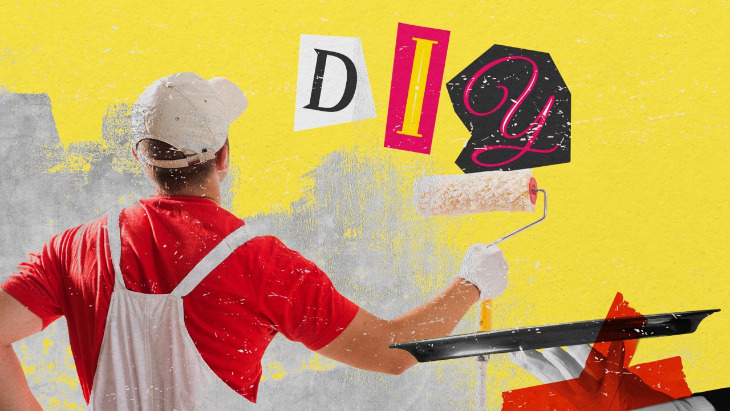 An Open Letter to University Presidents
An Open Letter to University Presidents


4 min read
Why do we derive greater satisfaction when exert our independence and do it ourselves?
I did something shocking last week. Instead of calling a fix-it man, I fixed the ceiling in our kitchen that had ugly water stains and bubbles of paint flaking off.
We all have our strengths, and mine do not include rolling up my sleeves to fix the broken faucet, the leaky toilet, or the loose cupboard. I am the opposite of handy around the house.
After more than a year in which the first thing you see upon entering our home is water damage, I finally decided to literally take matters in to my own hands and scrape, spackle, sand and paint the ceiling myself, tackling one step each night.
My wife and kids looked on with bemusement and some befuddlement as I brought home all the necessary tools and materials.
The white, pristine ceiling is now my favorite part of our home.
It's not perfect – not by a stretch – but it's beautiful. Smooth (more or less), white, clean and fresh. And best of all, I did it myself.
It doesn't matter that it's inferior; it's mine. I get more satisfaction from it because I grew it myself.
Why do we derive greater pleasure from doing things ourselves? The Talmud teaches, “A person prefers to have one part of his own produce to nine parts belonging to someone else” (Bava Metzia 38a). It doesn't matter that it's inferior; it's mine. I get more satisfaction from it because I grew it myself.
When we invest ourselves in something, putting in our blood, sweat and tears, the relationship we have with that object is deepened. It's part of me. A parent who sees himself in his child, the artist who sees himself in his painting, the struggling student who runs home to show his parents the A he got on his test – all sense that these are extensions of themselves.
When something is just given to you on a platter, with no work or investment required, there is less investment and therefore less pleasure is derived. "Daddy," says the spoiled rich kid, "someone hit my car and I need a new one." Easy come, easy go. His relationship to the car is casual, superficial.
We have a fierce desire to be independent, to break out of anything or anyone confining us, to be our own person.
Imagine an MBA graduate, let's call him Jake, who is pounding the pavement, trying to land his first job. A major hi-tech company has called him in for a job interview, and he gets word that the CEO himself is going to be conducting the interview. Jake is so excited.
The interview could not go better, and the CEO offers Jake a dream starting job. He's soaring. On the way out, the CEO puts his arm around Jake and says, "Well, Jake, a son of Frank is like a son of mine! When your father called me to tell me about your predicament, I said of course I'd help him out."
A sucker punch to the gut.
The deeper reason why accomplishing based on our own merit is so fulfilling is because we are being like God, Who is free and independent.
That feeling of deflation is called, in Kabbalistic terminology, "the bread of shame." We can't stand things being given to us on a platter. Our meaning comes from the challenge and effort we need to expend to reach our goals.
This is why God created mankind with free will. There would be no purpose creating a billion robots, even if they were programmed to do God's bidding. Free will gives us the ability to be like God, to be an independent, creative force. In fact, that is the deeper reason why exerting our independence and accomplishing based on our own merit and effort is so fulfilling and pleasurable. We are being like God, Who is free and independent.
My wife tells me the toilet needs fixing. Who knows? I may yet learn to use a silicon gun. Stranger things have happened.
